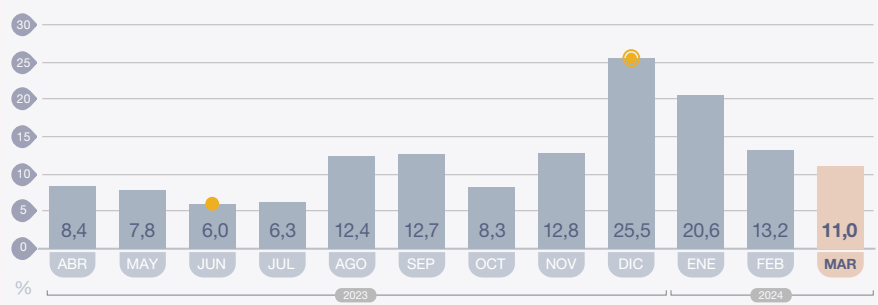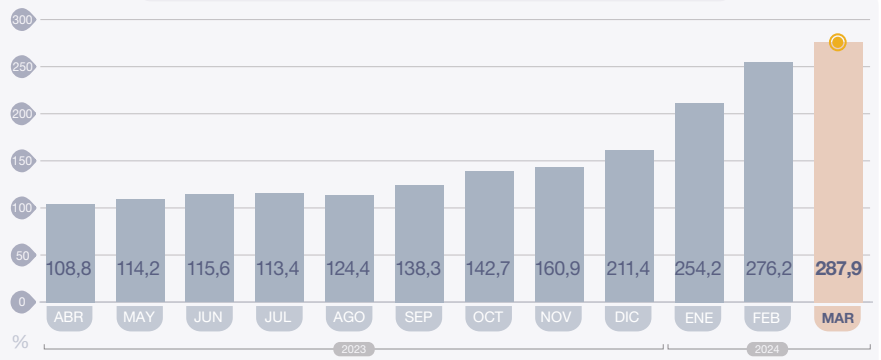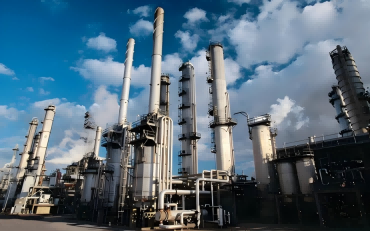Argentina’s inflation up to 288% in March, but central bank cuts rates on ‘pronounced slowdown’
Argentina’s annual rate of inflation rose to 287.9% in March, up from 276% in February, the country’s statistical agency Indec said on Friday.
Month-on-month, the Consumer Price Index (IPC in its Spanish acronym) rose by 11.0%, a slowdown from the 13.2% monthly increase posted in February. It was the monthly slowdowns what prompted the country’s central bank to cut interest rates earlier this week.
In the current inflation crisis, monthly price rises peaked in December. It has been falling for the past three months thereafter.
In % change

Some of the price increases in March, month on month, hit directly into consumers’ pockets, with squeezed Argentinians already stepping back from any big-ticket purchase.This, in turn, is causing a steep downturn in manufacturing, confirmed both by petrochemicals sources in Argentina and official statistics.
In % change

In Argentina’s beleaguered economy, the old rulebook of economics may have stopped applying some time ago.The rulebook says that, to fight high inflation, central banks will increase borrowing costs to depress consumption and, with that, hopefully lower prices as firms compete for lower demand.
Despite Argentina’s runaway annual rate of inflation, its central bank decided this week to lower interest rates to 70%, from 80%.
“More frequent price surveys have been useful to appreciate end-to-end monthly dynamics. In the coming months, measurements of underlying or core inflation will take on greater relevance in the diagnosis of the trajectory of inflation, in view of the announced adjustments to regulated tariffs for public services.”


